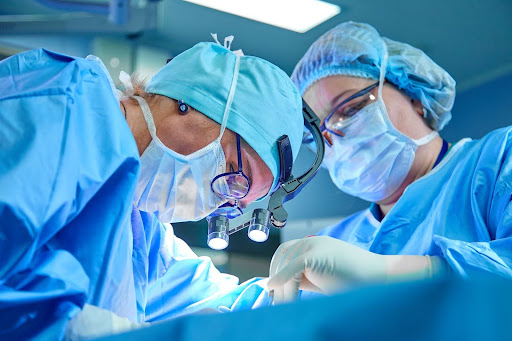December 16, 2023
7 Reproductive Surgery Treatment Options

According to the National Institutes of Health, studies suggest that after one year of having unprotected sex, 12% to 15% of couples are unable to conceive. Reproductive surgery involves a range of medical interventions designed to help with various reproductive health issues. Reproductive surgery can help individuals and couples achieve their desired goals of conception and a healthy pregnancy.
Reproductive Surgery Treatment Options
At Island Reproductive Services, we are experts in providing the care that your situation requires. That includes providing information regarding reproductive surgery treatment options for those looking to start a family. Continue reading to learn about 7 reproductive surgery options offered at Island Reproductive Services.
1. Hysteroscopy
Hysteroscopy is a minimally invasive technique that uses a small camera to look inside the uterus. This reproductive surgery requires no incision or operation on your belly and is done under general anesthesia. This can detect uterine polyps, scar tissue, and fibroids and fibroids that involve the lining of the uterus. These can prevent pregnancy as well as predispose to miscarriage. Hysteroscopy can be diagnostic as well as therapeutic.
Luckily, a hysteroscopy is truly a minimally invasive technique under sedation or minimal anesthesia. It is helpful for many women with various problems, from abnormal bleeding to infertility to recurrent pregnancy losses. It is important to note that this procedure must be timed appropriately in your menstrual cycle to allow your physician to visualize your uterus adequately.
2. Laparoscopy
Laparoscopy is a minimally invasive surgical technique that involves inserting a small camera near the belly button in order to look and possibly operate inside your abdomen. This is done under general anesthesia. Laparoscopy can be useful in evaluating or repairing the fallopian tubes, removing ovarian cysts, investigating or treating chronic pelvic pain, and removing endometriosis.
A laparoscopy is not recommended for every patient. However, on an individual basis, it may provide a diagnosis that would otherwise go undetected. Laparoscopy may also help other fertility treatments work better.
3. Robotic Laparoscopy
Robotic surgery is a form of laparoscopic minimally invasive surgery. Small, approximately 1 cm, incisions are used instead of a traditional larger incision. Robotic controls allow the surgeon to mimic his own hand movements with these very small instruments, with many benefits, including
- Less scar tissue formed from surgery due to more precise control
- Quick recovery – usually 3-7 days
- Same-day surgery – in most cases
- Less blood loss
- Removal of fibroids that would otherwise require a large incision
- Optimal visualization and removal of endometriosis
- More precise repair of fallopian tubes
- Removal of ovarian cysts with optimal preservation of normal ovarian tissue
Compared to traditional laparoscopy, the surgeon has better instrumentation, more precise movements, and optimal visualization. This is particularly better for endometriosis.
4. Laparotomy
Laparotomy refers to an “open” abdominal procedure where a larger incision is used requiring an overnight hospital stay. Some patients require this type of procedure if there is too much scar tissue in their body to perform laparoscopy, if the pathology being removed is very large, or if previous surgery makes this a requirement.
5. Myomectomy
Myomectomy is the surgical removal of fibroids. Fibroids can cause a variety of symptoms, including pain, abdominal pressure, bladder irritation, painful intercourse, abnormal bleeding, and difficulty becoming pregnant.
6. Salpingectomy
Sometimes, one or both fallopian tubes may be damaged beyond repair. They may appear enlarged or swollen (hydrosalpinx) on ultrasound or on hysterosalpingograms. When this occurs, the damaged tube will increase your chance of ectopic pregnancy, decrease your chance of becoming pregnant, and increase your miscarriage rate (even through IVF). In this case, your physician may recommend removing the tube to increase your chances of becoming pregnant.
7. Removal Of Ovarian Cysts
Ovarian cysts are very common, especially in young women. Cysts that grow large often resolve on their own without requiring any treatment. Sometimes, they may grow larger or persist and require surgery. The majority of cysts are benign. However, a small percentage of cysts may prove to be cancer. Surgical therapy is the only way to make an absolute diagnosis.
Learn More With Island Reproductive Services
Reproductive surgery treatment options offer hope and solutions for individuals and couples facing challenges with fertility. These interventions address various reproductive health conditions, improve fertility, and increase the chances of successful pregnancies, ultimately assisting individuals in building the families they desire.
Are you interested in scheduling one of the above procedures with a provider? You may even wonder if one of these procedures is right for you. Our team can help you find the information you need. At Island Reproductive Services, we are experts in providing the care that your situation requires. We will meet with you to find out what you need. Check out our website or give us a call at (718) 948-6100 for more information.

